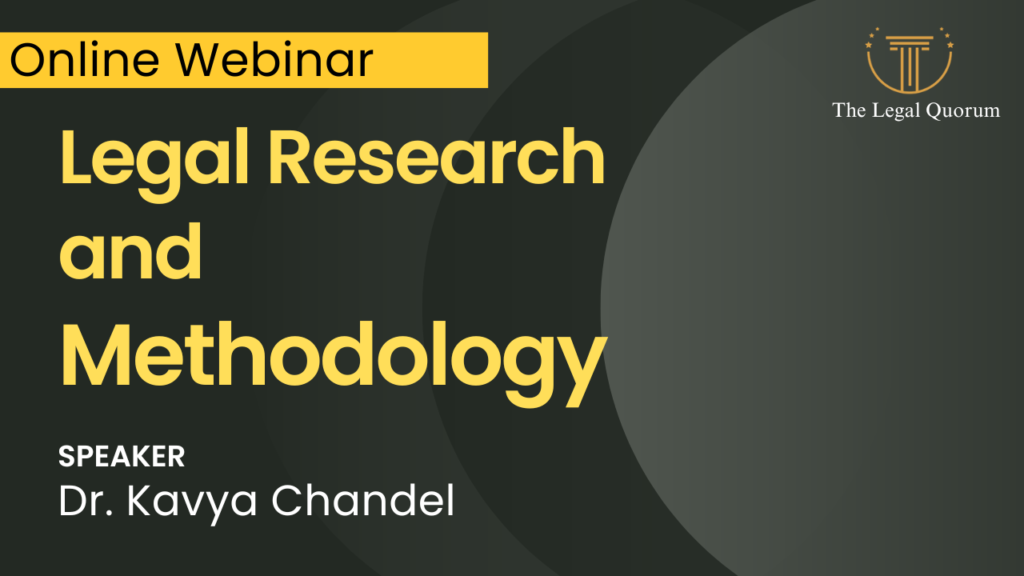Published On: 8th September, 2024
INTRODUCTION
The landmark case of Shibu Soren V. Dayanand Sahay[1] establishes a crucial principle cantered on ensuring impartiality and neutrality in public services. This principle aims to empower members to carry out their responsibilities freely and fearlessly without succumbing to any governmental compression, thereby upholding the honesty of the legislature. The term “office of profit,” which is not explicitly defined in the “Constitution of India”, allows for various interpretations and often leads to disputes. In the absence of a statutory definition, the term must be understood in its ordinary sense, guided by judicial interpretations. The primary objective is to minimize or eliminate conflicts of interest among Members of Parliament by disqualifying individuals from continuing as MPs if they hold any office of profit under the Government of India or any State, except for offices explicitly exempted by Parliament.[2]
The recent controversies surrounding the disqualification of some of the “Members of Parliament” and “Members of Legislative Assemblies” due to holding an “Office of Profit” have once again come to the forefront in Indian politics. Despite being a significant issue, there has been limited debate on the matter. Notably, a recent amendment bill addressing the “office of profit” was passed by Parliament without extensive discussion, raising concerns that it was done to cater to the interests of the parliamentarians without thorough consideration of the constitutional implications.
FACTS
- “The Election Commission issued a notification to fill seven Rajya Sabha seats. Nine individuals, including the appellant and seven respondents, submitted nomination papers, all of which were deemed valid after scrutiny.”
- “On June 18, 1998, nominations occurred and the appellant received the highest number of votes while Respondent 1 was defeated.”
- “Respondent 1 filed an election petition on the grounds that, at the time of nomination, the appellant held an “office of profit” as the Chairman of the Interim Jharkhand Area Autonomous Council under the Jharkhand Area Autonomous Council Act, 1994, rendering him disqualified for Rajya Sabha candidacy.”
- “The appellant countered the Election Petition, contending that the interim JAAC Chairman role did not constitute an “office of profit.” Furthermore, the appellant argued that the election petitioner was prohibited from raising this challenge, as it was not brought up during the nomination paper scrutiny.[3]”
ISSUE
- Whether the appellant is said to be “holding an office of profit” and comes under the purview of Article 102(1)(a) or Article 191 for the purpose of disqualification.
- Whether the election of the Appellant should be declared void.
RULE
- “Article 102(1)(a) in Constitution of India”[4]
Which talks about disqualification of a member says that a person can and will be disqualified if he holds the office of profit under either State or Union government.
- “Article 191 in Constitution of India”[5]
“Article 191(1)(a) of the Indian Constitution”[6], which establishes comparable disqualifications for selection or membership in a State’s Legislative Council or Assembly, is equivalent to “Article 102(1)(a)”[7].
ANALYSIS
In order to analyse the scenario, we must first determine whether the three requirements of “Article 102(1)(a)” are being met.
- “Under the Government of India or any State.”
- “The office should be an “office of profit.”
- “The office should be other than an office declared by parliament by law not to disqualify its holder.”
- “In the current situation, it is undisputed that the appellant, through his appointment as the chairman of the Interim JAA council by the State Government, occupied a position that existed independently of the individual holding it. The key consideration, however, is whether the position held by the appellant can be classified as an office of profit. Here, the appellant was paid Rs. 150 per day as compensation for carrying out interim council work away from the headquarters and Rs. 120 per day for council meeting days. These costs were incurred to cover personal expenses and were compensatory allowances rather than a source of profit. However, in addition to daily allowances, rent-free housing, and a chauffeur-driven automobile at state expense, he also received Rs. 1750 per month in addition to out-of-pocket payments. The appellant was holding an office of profit under the State Government because the word profit for the purposes of “Article 102(1)(a)” or “Article 191” “connotes an idea of “pecuniary gain” and, in this case, we find that the honorarium of Rs. 1750 paid to the appellant as a chairman, in addition to other daily allowances and perquisites like rent-free accommodation and a car with a driver, could not be said to be compensatory and was instead in the nature of remuneration or salary inherently implying an element of “profit” and of giving the appellant “pecuniary gain.” According to sub-section (2) of “Section 23 of the JAAC Act”[8], which states that the State Government shall nominate fifty percent of the Council’s total membership from the members of the Legislative Assembly and Lok Sabha representing the Area as well as from the members of the Rajya Sabha and Legislative Council who are residents of the Area, this council was to function as an arm or agency of the State Government tasked with carrying out the specific task. It follows that the “JAA Act’s”[9] temporary JAA Council, which was only composed of nominees chosen by the State Government, was intended to serve “at the pleasure of the State Government”. As a result, it was determined that the appellant was employed by the State Government. Based on the points made in the additional written statement, the appellant’s disqualification was not prevented by the Parliament’s “Prevention of Disqualification Act, 1959”. Among these arguments was the claim that, in his capacity as the Chairman of the Interim Council, the appellant had the “status” and other benefits of a Minister within the State, and that, as a result, “Section 3 of the 1959 Act”[10] abolished his disqualification.
- “The main aim of both the provisions is to eliminate or reduce risk of any conflict between duty and interest amongst the members. The intention is to enable elected members to perform their duties freely and fearlessly without being subjected to governmental pressure. The underlying assumption is that if an elected individual holds a position that provides remuneration and if the government has a say in their functions in that position, there is a risk of the individual yielding to the government’s desires. The fundamental idea conveyed in these two articles revolves around the concept of the separation of powers among the key entities within a state, such as the legislative, judiciary, and executive branches. The phrase “office of profit” is not defined in the constitution, and the judiciary is left to interpret it. In this context, “profit” refers to any financial benefit associated with the position. In order to determine whether a member is enjoying an office of profit, it is necessary to consider the specific facts and circumstances of each case rather than adopting a “strict and narrow approach,” as this would be unreasonable. The interpretation should be made so as not to undermine the goal of “Article 102 (1)(a)”[11], which is to ensure that the legislative does not contain any individuals who receive benefits from the executive and may therefore be susceptible to its influence.[12]” Based on the case facts, it is observed that Shibu Soren, in his capacity as Chairman, is disqualified from being elected or serving as a member of either House of Parliament due to holding an “office of profit” under the State government. The designation of the gain, whether termed as “honorarium,” “remuneration,” or “salary,” is not crucial. The key consideration is whether the monetary benefits received by the officeholder result in pecuniary gain beyond reimbursement for out-of-pocket expenses. Such gain could potentially influence the individual, bringing them under the influence of the executive authority providing those benefits. This scrutiny is essential to uphold the separation of powers and maintain a clear distinction between one’s official duties and personal interests. In instances where an individual is appointed by the State Government and holds the office at the State’s pleasure, it qualifies as an office of profit under the government. Even if the office is established by a legislative act, as seen in the Jharkhand Area Autonomous Council case, the fact that the person could be dismissed at any time indicates the nature of an office of profit.
PRECEDENT
- Supreme Court in S. Kaggeerappa v. Ravabba Subanna[13] held that Profit carries with it the idea of financial benefit. If there is a true gain, its size or amount wouldn’t matter; but, a person’s amount of money owed for the position they hold may matter in determining if the position actually generates a profit.
- “In the case of Ramappa v. Sang[14] noted that “Patels and Shanbhogs who are the holders of hereditary village offices governed by the Mysore Village Offices Act, 1908 are officers who are appointed to their offices by the Government though it may be that the Government has no option in certain cases but to appoint an heir of the last holder; that they hold their office by reason of such appointment only, that they work under the control and supervision of the Government; that their remuneration is paid by the Government out of Government funds and assets; and that they are removable by the Government, and that there is no one else under whom their offices could be held.””
- “In the case of Jaya Bachan v. Union of India (UOI) and Ors[15], the Supreme Court ruled that the petitioner’s position as” Chairperson of the Uttar Pradesh Film Development Council qualifies as a “office of profit” because the position entitles the petitioner to:
i. a monthly honorarium of Rs. 5,000
ii. a daily allowance of Rs. 600 within the state and Rs. 750 outside. Ten thousand rupees a month for amusement and expenses.
iii. A staff vehicle driven by a driver, phones in the office and home, one P.S and one P.A and two class IV workers.
CONCLUSION
“After considering the aforementioned discussion, it is evident that the true test to be used in determining whether or not an individual holds an office of profit depends on the degree of control the government exercises, whether or not it has the authority to appoint or dismiss, and whether or not the salary is paid from government funds. The salary that the entitled individual receives must not be compensatory in nature in order to cover day-to-day expenses; rather, it must confer some gain upon the individual. One thing to keep in mind is that the goal of disqualification is to prevent disputes amongst state employees.”
In the current situation, the idea of division of powers becomes too slender since government functions have grown so broad that the government is unable to carry out its assigned authority. And under these circumstances, it is imperative that there be no inconsistency between the responsibilities carried out by the individual in their legislative and executive capacities. Despite the fact that our constitution allows the government to make legislation having retroactive effect exempting any position from the definition of a “office of profit,” The legislature’s expansive authority has limited the application of “Article 102 (1) (a)”[16] and “Article 191 (1) (a)”[17]. By changing the legislation, majority governments have made it customary to exempt positions held by party members from appointment.
BIBLIOGRAPHY
DATABASE
- MANUPATRA
- JSTOR
BOOKS
- N Shukla; Constitution of India;13th Edition; Eastern Book Publication.
- P. Jain; Indian Constitutional Law; Edition; Lexis Nexis.
WEBSITES
- https://articles.manupatra.com/article-details/Office-of-Profit-A-Comprehensive-Analysis
- https://thewire.in/law/the-curious-case-of-no-profit-in-office-of-profit
[1] “[Shibu Soren] V. [Dayanand Sahay],[ AIR 2001 SC 2583].”
[2] [ Mr. Vyankastesh Singh].[ Office of Profit: A Comprehensive Analysis],[ https://articles.manupatra.com/article-details/Office-of-Profit-A-Comprehensive-Analysis].
[3] [https://thewire.in/law/the-curious-case-of-no-profit-in-office-of-profit]
[4] “INDIA CONST. art. 102.”
[5] “INDIA CONST. art. 191.”
[6] INDIA CONST. art. 191.
[7] INDIA CONST. art. 102.
[8] Jharkhand Area Autonomous Council Act. 1994.sec.23.
[9] Jharkhand Area Autonomous Council Act. 1994.sec.23.
[10] Prevention of Disqualification Act, 1959 (India).
[11] INDIA CONST. art. 102(1)(a).
[12] [Shruti Bedi], [ AMENDMENT IN “OFFICE OF PROFIT” – A DILUTION OF THE SPIRIT OF THE INDIAN CONSTITUTION], [Vol. 48, No. 3] [pp. 409-424 (16 pages)], [(July-September 2006)].
[13] [G. S. Kaggeerappa] v. [Ravabba Subanna] [AIR1954 SC 653].
[14] [M. Ramappa] v. [Sang] [AIR1958 SC 937].
[15][Jaya Bachan] v. [Union of India (UOI) and Ors] [2006 (5) SCALE 511]
[16] INDIA CONST. art. 102.
[17] INDIA CONST. art. 191.




